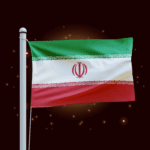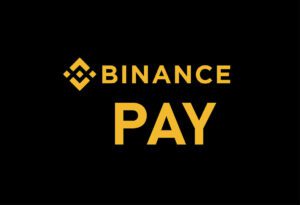Gambling Laws by Arabic Countries
Gambling regulations in the Arabic countries are shaped by cultural, religious and legal considerations that reflect the values of the predominantly Muslim population. With Islam’s prohibition of gambling, Arab countries have implemented strict laws to discourage and, in many cases, outright ban betting activities. We will delve into the specific rules governing gambling in the Arab world and address the use of Virtual Private Networks (VPNs) in this context.
Given the strict legal stance against gambling in most Arab nations, some individuals may seek to bypass these restrictions using VPNs. A VPN allows users to mask their internet protocol (IP) addresses, making it appear as though they are accessing the internet from a different location. This can grant them access to online gambling platforms that might otherwise be blocked within their country.
Read more +
Best Arabic Sports Betting Sites and Online Casinos

Saudi Arabia

Qatar

Kuwait

Bahrain

Egypt

Jordan

Lebanon

Libya

Morocco

Tunisia

Yemen

Algeria

Comoros

Djibouti

Mauritania
Introduction to Arab Gambling Laws
Arabic countries Gambling laws have long been a subject of intrigue and curiosity. With a diverse cultural and religious backdrop, this region’s stance on gambling varies significantly from the rest of the world.
Historical Context
To grasp the current state of Arabian Gambling Laws, it’s crucial to delve into their historical evolution. From ancient prohibitions rooted in religious texts to modern-day adaptations, the journey is fascinating.
Religious Influences
Islam, being the predominant religion in the Arabic countries, plays a pivotal role in shaping gambling laws. The Quran explicitly condemns activities based on chance, deeming them as detrimental to personal and societal well-being.
Legal Framework
Each Arab country approaches gambling differently. Some nations adopt strict prohibitions, while others implement regulated frameworks, such as state-run lotteries or licensed casinos.
Exceptions and Nuances
Despite overarching restrictions, certain regions within Arabic countries have carved out exceptions. These exceptions are often tied to tourism and international cooperation.
Online Gambling
The rise of the digital age has posed new challenges for enforcing gambling laws. Arab nations grapple with the ever-expanding world of online betting platforms and how to regulate them effectively.
Future Perspectives
As the global conversation around gambling continues to evolve, so too may the approach of Arab nations towards this industry. Economic considerations and shifting social norms could influence future policy changes.
Navigating Arabian Gambling Laws is a nuanced endeavor, intertwined with religion, history, and contemporary realities. Understanding the complexities of this legal landscape is predominant for anyone engaging with gambling activities in the Arab world.
In this guide, we’ve unraveled the intricacies, shedding light on a subject that continues to captivate scholars, policymakers, and enthusiasts alike. Remember, knowledge is the key to compliance and respectful engagement in any culture.
Gambling Laws by Arabic Countries
The ArabianCasino team has undertaken the excellent task of consolidating the gambling laws of all Arabic countries. Our meticulous effort has resulted in a comprehensive and highly informative summary that is now readily accessible. This invaluable resource serves as a beacon for both enthusiasts and industry professionals seeking to navigate the complex legal landscape surrounding gambling in the Middle East and North Africa.
The ArabianCasino team’s dedication to enhancing transparency and understanding in the MENA gambling sector is a testament to their commitment to the industry’s growth and prosperity.

Qatar

United Arab Emirates

Kuwait

Bahrain

Saudi Arabia

Oman

Lebanon

Tunisia

Jordan

Iran

Egypt

Algeria

Morocco

Yemen

Libya
Arabic Countries Future Trends and Developments
The landscape of gambling in Arabic countries has been undergoing a gradual transformation over the years. This article aims to provide an objective overview of the development of gambling within this region. It is evident that gambling laws in Arab states are becoming more tolerant, leading to increased accessibility for the local population.
Historical Context
Traditionally, Arabic countries have held a conservative stance towards gambling, rooted in cultural and religious values. Islamic law, which forms the basis of legal systems in many Arabic countries, prohibits gambling activities. However, as societal norms evolve and economic dynamics change, there has been a notable shift in attitudes towards gambling.
Emergence of Controlled Environments
In recent years, several Arab states have adopted a pragmatic approach towards gambling by establishing regulated, controlled environments such as casinos and betting facilities. These establishments adhere to strict regulatory frameworks, ensuring that they operate within legal boundaries.
Tourism and Economic Diversification
One of the driving forces behind this shift has been a desire to diversify economic sources. Tourism, in particular, has played a central role in the development of gambling industries in Arab states. Casinos and betting facilities are often positioned as integral components of larger entertainment complexes, attracting both local and international visitors.
Digital Revolution and Online Gambling
The advent of the digital age has further accelerated the accessibility of gambling in Arab states. Online platforms have become increasingly popular, offering a wide array of betting options, including sports betting, casino games, and virtual gaming. This digital transformation has allowed individuals to engage in gambling activities from the comfort of their own homes, creating a new dimension of accessibility.
Social and Cultural Implications
The evolving gambling landscape in Arab states has sparked discussions regarding potential social and cultural consequences. Advocates argue that regulated gambling can contribute to revenue generation, job creation, and the development of tourism infrastructure. Critics, on the other hand, express concerns about potential addiction and the erosion of traditional values.
The development of gambling in Arab states reflects a changing societal and economic landscape. While conservative attitudes towards gambling persist, there is an observable trend towards greater acceptance and accessibility. The establishment of regulated environments and the rise of online platforms are indicative of this evolution. It is essential for policymakers to strike a balance between economic incentives and the potential social and cultural impacts of this burgeoning industry.
VPN in Arabic Countries
A Virtual Private Network (VPN) is a technology that creates a secure and encrypted connection between a user’s device and a remote server, effectively masking the user’s IP address and location. This allows users to bypass geographical restrictions and access websites or services that may be blocked in their region. How VPNs Benefit Online Gamblers in Arab Countries?
Bypassing Geographic Restrictions
Many online gambling platforms are restricted or even blocked in certain Arab countries due to legal and regulatory reasons. VPNs provide a means to bypass these restrictions by making it appear as though the user is accessing the internet from a different location.
Enhanced Security and Privacy
VPNs encrypt the data transmitted between the user’s device and the VPN server. This encryption protects sensitive information such as login credentials, financial details, and personal data from potential cyber threats, ensuring a safe gaming experience.
Protection Against DDoS Attacks
Distributed Denial of Service (DDoS) attacks can severely disrupt online gaming experiences. VPNs add an extra layer of protection by concealing the user’s real IP address, making it harder for attackers to target them.
Reduced Latency and Lag
VPNs can improve connection speed and reduce lag by optimizing the route between the user’s device and the game server. This is particularly important in online gaming, where split-second decisions can make a significant difference.
Access to International Servers
Some online gambling platforms have region-specific servers, which may provide different gaming options or bonuses. Using a VPN, players can virtually relocate to different countries and access these servers.
How to Choose a VPN for Online Gaming?
Time needed: 10 minutes
- Server Locations
Look for a VPN service that offers a wide range of server locations, including those in countries where online gambling is legal and popular.
- Connection Speed
Opt for a VPN provider known for its fast and stable connections to ensure smooth gameplay without lag.
- Security Features
Choose a VPN that provides strong encryption protocols, a no-logs policy, and features like a kill switch to ensure maximum privacy and security.
- Device Compatibility
Ensure that the VPN supports the devices you plan to use for gaming, including computers, smartphones, and gaming consoles.
For casino players in Arab countries looking to enjoy online gambling without facing geographical restrictions and security concerns, VPNs offer a reliable solution. By providing a secure, private, and unrestricted online environment, VPNs empower players to make the most of their gaming experience. However, it’s crucial to choose a reputable VPN service that caters to the specific needs of online gamers. With the right VPN in place, players can explore a world of online gaming possibilities while ensuring their security and privacy.
Safe Payment Methods in Arabic Countries
In recent years, the popularity of online casinos in Arab states has surged, bringing with it a demand for secure and reliable payment methods. The safety of financial transactions is paramount for both players and operators. We will explore various secure payment options available for players in Arab countries, emphasizing the importance of e-wallets, prepaid cards, cryptocurrencies, and other cutting-edge methods.
E-Wallets
Prepaid Cards
Cryptocurrencies
Bank Transfers
Two-Factor Authentication
E-wallets have emerged as one of the most secure and convenient methods for online casino transactions. Services like PayPal, Skrill, and Neteller offer encrypted platforms that act as intermediaries between players’ bank accounts and the casino. These e-wallets add an extra layer of security by keeping sensitive information away from the casino’s servers.
In the rapidly evolving landscape of online casinos, choosing a secure payment method is crucial for players in Arab states. E-wallets, prepaid cards cryptocurrencies, and bank transfers all offer varying levels of security. However, with the rise of technologies like blockchain and two-factor authentication, players now have more tools than ever to safeguard their transactions. By employing these secure payment methods, players can enjoy their gaming experience with confidence and peace of mind.
You May Also Like

With over a decade of experience in the gambling industry, encompassing both traditional and online gaming, the author has established themselves as a seasoned expert. What initially began as a simple hobby of crafting descriptions for casinos and online slot machines gradually evolved into a daily pursuit, consuming a significant portion of their time. Martins doesn’t limit their writing to online casinos alone, but also offers valuable insights into the world of sports betting. This extensive background ensures a wealth of knowledge and expertise in the field of gambling.
Frequently Asked Questions
Is it safe to gamble online in any way?
Even in countries where gambling is illegal, there are precautions you can take to gamble online safely. To protect your privacy, it is crucial to use a VPN when playing at online casinos in the Middle East.
Why should I bet online, instead of offline?
Online gambling provides several advantages over offline betting. In regions where gambling is mostly illegal, land-based options are often unregulated and lack security features. Conversely, regulated overseas online gambling sites offer a safe and reliable platform for betting on casino games and sports.
Can I claim bonuses at top online casino sites?
Yes, Arab players can take advantage of bonuses and promotional offers when using the best online casino sites. These may include welcome offers, free spins, cashback bonuses, and reload bonuses.
Are cryptocurrencies accepted at the best online casinos for Arab players?
Absolutely! The recommended online casinos utilize advanced technologies like Blockchain, allowing you to use cryptocurrencies such as Bitcoin, Ethereum, Dogecoin, Tether and Bitcoin Cash for deposits or withdrawals.
Can I make deposits and withdrawals in local currency?
The ability to use your local currency at an online casino depends on the specific site. If you're playing at a casino catering to Arab players, you should have the option to make transactions in your local currency. Additionally, some sites may offer local payment methods for fund transfers.














